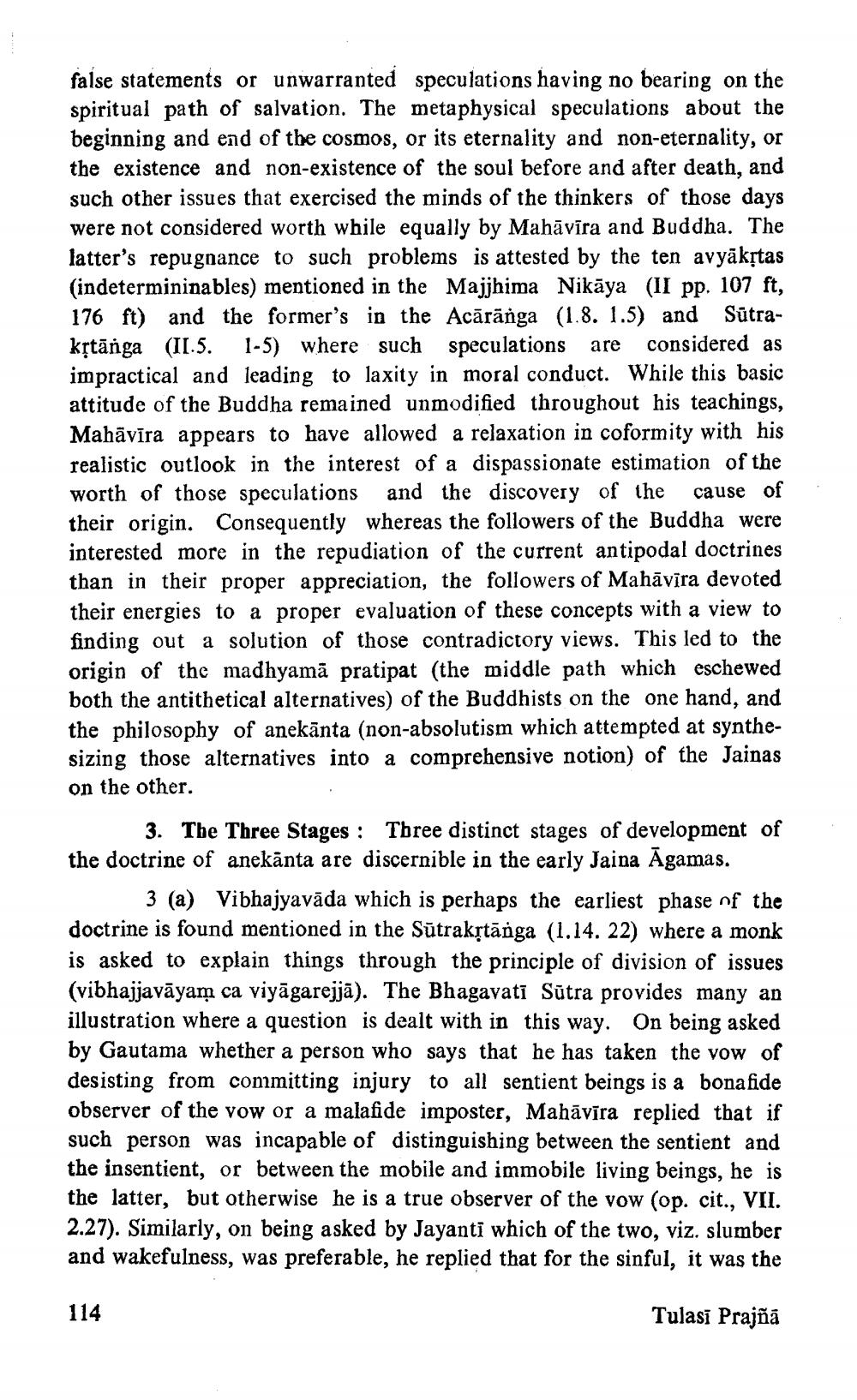________________
false statements or unwarranted speculations having no bearing on the spiritual path of salvation. The metaphysical speculations about the beginning and end of the cosmos, or its eternality and non-eternality, or the existence and non-existence of the soul before and after death, and such other issues that exercised the minds of the thinkers of those days were not considered worth while equally by Mahāvīra and Buddha. The latter's repugnance to such problems is attested by the ten avyākṛtas (indetermininables) mentioned in the Majjhima Nikaya (II pp. 107 ft, 176 ft) and the former's in the Acaranga (1.8. 1.5) and Sutrakṛtānga (II.5. 1-5) where such speculations are considered as impractical and leading to laxity in moral conduct. While this basic attitude of the Buddha remained unmodified throughout his teachings, Mahāvīra appears to have allowed a relaxation in coformity with his realistic outlook in the interest of a dispassionate estimation of the worth of those speculations and the discovery of the cause of their origin. Consequently whereas the followers of the Buddha were interested more in the repudiation of the current antipodal doctrines than in their proper appreciation, the followers of Mahāvīra devoted their energies to a proper evaluation of these concepts with a view to finding out a solution of those contradictory views. This led to the origin of the madhyama pratipat (the middle path which eschewed both the antithetical alternatives) of the Buddhists on the one hand, and the philosophy of anekanta (non-absolutism which attempted at synthesizing those alternatives into a comprehensive notion) of the Jainas on the other.
3. The Three Stages: Three distinct stages of development of the doctrine of anekanta are discernible in the early Jaina Agamas.
3 (a) Vibhajyavāda which is perhaps the earliest phase of the doctrine is found mentioned in the Sutrakṛtānga (1.14. 22) where a monk is asked to explain things through the principle of division of issues (vibhajjavāyam ca viyāgarejjā). The Bhagavati Sūtra provides many an illustration where a question is dealt with in this way. On being asked by Gautama whether a person who says that he has taken the vow of desisting from committing injury to all sentient beings is a bonafide observer of the vow or a malafide imposter, Mahāvīra replied that if such person was incapable of distinguishing between the sentient and the insentient, or between the mobile and immobile living beings, he is the latter, but otherwise he is a true observer of the vow (op. cit., VII. 2.27). Similarly, on being asked by Jayanti which of the two, viz. slumber and wakefulness, was preferable, he replied that for the sinful, it was the
Tulasi Prajñā
114




